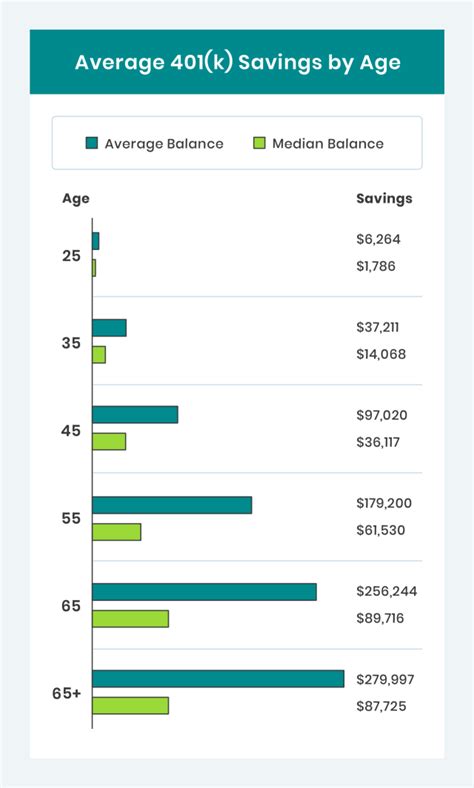
RFK Jr.’s campaign’s recent leadership changes within the Children’s Health Defense (CHD), specifically regarding its vaccine safety research, are sparking concerns that these changes could lead to increased healthcare costs related to vaccine development and availability. The shift raises questions about the future direction of vaccine advocacy and its potential impact on pharmaceutical companies and consumers alike.
Robert F. Kennedy Jr.’s presidential campaign has indirectly stirred debate regarding the future of vaccine safety and accessibility through changes within the Children’s Health Defense (CHD), an organization he founded. While Kennedy focuses on his political aspirations, concerns are emerging that the restructured leadership and altered research focus of CHD could potentially lead to higher costs associated with vaccines. This situation highlights the intricate relationships between advocacy, scientific research, and public health policy, with ripple effects that could touch pharmaceutical companies and consumers across the healthcare landscape.
Changes within the Children’s Health Defense (CHD)
The Children’s Health Defense, previously led by Robert F. Kennedy Jr., has been a vocal advocate for vaccine safety and has frequently questioned the scientific consensus surrounding vaccine efficacy and safety. Kennedy’s departure to focus on his presidential campaign has led to significant internal restructuring. According to a recent Yahoo Finance report, these changes may alter the organization’s approach to vaccine safety research and advocacy.
The changes within CHD include the appointment of new leadership figures who may have different priorities and perspectives on vaccine-related issues. This transition has triggered speculation about the organization’s future direction and its potential influence on public opinion and policy. While the specifics of these internal shifts are not fully transparent, analysts suggest that the alterations could impact the type of research CHD undertakes, the advocacy positions it adopts, and its overall engagement with the scientific and medical communities.
Potential Impact on Healthcare Costs
One of the primary concerns arising from these changes is the potential for increased healthcare costs. Vaccines are a crucial component of public health, preventing the spread of infectious diseases and reducing the burden on healthcare systems. However, the development, production, and distribution of vaccines are complex and costly processes. Any factor that disrupts this process or introduces additional regulatory hurdles could potentially drive up prices.
“If the work of CHD shifts in ways that promote vaccine hesitancy or opposition, it could lead to decreased vaccination rates,” explains Dr. Emily Carter, a public health economist. “Lower vaccination rates can result in outbreaks of preventable diseases, which then necessitate costly medical interventions. Moreover, if pharmaceutical companies face increased scrutiny or legal challenges due to CHD’s advocacy, they may raise vaccine prices to offset these risks.”
Furthermore, the article highlights that increased skepticism surrounding vaccines could lead to more stringent testing and regulatory requirements. “Such requirements, while intended to ensure safety, often come with a hefty price tag. Pharmaceutical companies would likely pass these costs on to consumers, leading to higher vaccine prices and potentially reduced access for vulnerable populations,” the Yahoo Finance article notes.
The Role of Advocacy and Public Opinion
Organizations like CHD play a crucial role in shaping public opinion and influencing policy decisions related to healthcare. By raising awareness about potential risks and advocating for stricter safety standards, these groups can contribute to a more informed and cautious approach to vaccine development and distribution. However, their influence can also have unintended consequences.
“When advocacy efforts create undue fear or distrust in vaccines, it can undermine public health initiatives and lead to preventable disease outbreaks,” warns Dr. David Lee, a pediatric infectious disease specialist. “It is essential to strike a balance between promoting transparency and ensuring that public health recommendations are based on sound scientific evidence.”
The changes within CHD raise questions about the organization’s ability to maintain this balance. If the new leadership adopts a more adversarial approach or promotes unsubstantiated claims about vaccine risks, it could further erode public trust in vaccines and complicate efforts to control infectious diseases. This erosion of trust could then necessitate more intensive public health campaigns and interventions, adding to the overall cost of healthcare.
Impact on Pharmaceutical Companies
Pharmaceutical companies are at the forefront of vaccine research, development, and production. They invest significant resources into creating safe and effective vaccines to combat a wide range of infectious diseases. However, these companies are also subject to intense scrutiny from regulatory agencies, advocacy groups, and the public.
The changes within CHD could potentially impact pharmaceutical companies in several ways. First, if CHD increases its scrutiny of vaccine safety data or launches legal challenges against vaccine manufacturers, it could create additional regulatory hurdles and increase the cost of bringing new vaccines to market. Second, if CHD’s advocacy leads to decreased vaccination rates, it could reduce demand for vaccines and negatively impact pharmaceutical companies’ revenues.
“Pharmaceutical companies are constantly balancing the need to innovate and develop new vaccines with the need to comply with regulatory requirements and address public concerns,” says Michael Thompson, a healthcare industry analyst. “Any factor that adds to the complexity or cost of this process could ultimately impact the availability and affordability of vaccines.”
In addition, some argue that increased scrutiny of vaccine development could lead to a chilling effect on innovation. If pharmaceutical companies perceive the regulatory environment as too hostile or the risk of legal challenges as too high, they may be less willing to invest in new vaccine research, potentially leaving the world vulnerable to emerging infectious diseases.
The Broader Context of Vaccine Hesitancy
Vaccine hesitancy is a complex and growing problem that affects countries around the world. It is driven by a variety of factors, including misinformation, distrust in authorities, and concerns about vaccine safety. The changes within CHD occur within this broader context and could potentially exacerbate the problem.
“Vaccine hesitancy is not simply a matter of individual choice; it has significant implications for public health,” explains Dr. Sarah Brown, a behavioral scientist specializing in health communications. “When vaccination rates fall below a certain threshold, herd immunity is compromised, and the entire population becomes more vulnerable to infectious diseases.”
Addressing vaccine hesitancy requires a multi-faceted approach that includes clear and transparent communication, evidence-based public health campaigns, and efforts to build trust between healthcare providers and the public. Organizations like CHD can play a role in this process by promoting informed dialogue and advocating for safer vaccines. However, they must do so in a way that is grounded in scientific evidence and does not undermine public trust in vaccination.
The Role of Government and Regulatory Agencies
Government agencies, such as the Centers for Disease Control and Prevention (CDC) and the Food and Drug Administration (FDA), play a crucial role in ensuring the safety and effectiveness of vaccines. These agencies are responsible for setting standards for vaccine development, conducting clinical trials, and monitoring vaccine safety after they are released to the public.
The changes within CHD could potentially influence the way these agencies approach vaccine regulation. If CHD raises concerns about the adequacy of existing safety standards or challenges the validity of scientific data, it could prompt regulatory agencies to conduct additional reviews or implement more stringent requirements.
“Regulatory agencies are constantly evaluating the evidence and adjusting their policies as needed,” says Dr. Robert Jones, a former FDA official. “They are committed to ensuring that vaccines are safe and effective, and they will take appropriate action if there are legitimate concerns about their safety.”
However, regulatory agencies must also be careful not to overreact to unsubstantiated claims or political pressure. Implementing overly burdensome regulations could stifle innovation and make it more difficult to bring new vaccines to market, ultimately harming public health.
International Implications
The debate over vaccine safety and the role of organizations like CHD is not limited to the United States. Vaccine hesitancy is a global problem, and the actions of advocacy groups in one country can have ripple effects around the world.
“In an increasingly interconnected world, it is essential to address vaccine hesitancy at the global level,” says Dr. Maria Rodriguez, a global health expert. “Misinformation and distrust in vaccines can spread rapidly across borders, undermining public health efforts in multiple countries.”
International organizations, such as the World Health Organization (WHO), are working to promote vaccine confidence and address vaccine hesitancy worldwide. These organizations rely on scientific evidence and public health expertise to develop recommendations and guidelines for vaccine use. They also work with governments and healthcare providers to implement effective vaccination programs.
The changes within CHD could potentially complicate these efforts. If CHD’s advocacy leads to decreased vaccination rates in the United States, it could embolden vaccine skeptics in other countries and make it more difficult to achieve global vaccination goals.
The Long-Term Outlook
The long-term implications of the changes within CHD are difficult to predict. However, it is clear that the organization’s future direction will have a significant impact on the debate over vaccine safety and the broader landscape of public health.
“The changes within CHD represent a critical juncture in the ongoing debate over vaccines,” says Dr. Susan Williams, a health policy analyst. “Depending on how the organization evolves, it could either contribute to a more informed and balanced discussion about vaccine risks and benefits, or it could further polarize the debate and undermine public trust in vaccination.”
Ultimately, the future of vaccine safety and the affordability of healthcare will depend on the ability of all stakeholders – including advocacy groups, pharmaceutical companies, regulatory agencies, and the public – to engage in constructive dialogue and make informed decisions based on scientific evidence. Failure to do so could have serious consequences for public health and the overall well-being of society.
Potential Future Scenarios:
To provide a clearer understanding of the potential consequences stemming from the changes within the Children’s Health Defense (CHD), let’s explore several possible future scenarios:
-
Increased Vaccine Hesitancy and Reduced Vaccination Rates: This scenario assumes that the restructured CHD intensifies its efforts to question vaccine safety and efficacy, leading to a significant decline in public confidence. This could result in parents choosing not to vaccinate their children, leading to outbreaks of preventable diseases like measles, mumps, and whooping cough. The healthcare system would then face increased costs for treating these illnesses, managing outbreaks, and conducting public health campaigns to restore vaccine confidence.
- Impact: Higher healthcare costs due to disease outbreaks, increased burden on public health infrastructure, potential loss of productivity due to illness, and strain on hospital resources.
-
Stricter Regulatory Scrutiny and Increased Testing Costs: In this scenario, the CHD’s advocacy prompts regulatory agencies like the FDA to implement more rigorous testing and approval processes for vaccines. While intended to ensure safety, these additional requirements could significantly increase the costs of vaccine development and production. Pharmaceutical companies would likely pass these costs on to consumers through higher vaccine prices.
- Impact: Increased vaccine prices, potentially reduced access to vaccines for low-income populations, slower development of new vaccines, and a decrease in pharmaceutical innovation.
-
Legal Challenges and Litigation: The CHD could initiate legal challenges against pharmaceutical companies, alleging vaccine-related injuries or insufficient safety testing. Even if these lawsuits are ultimately unsuccessful, the legal costs and potential reputational damage could deter companies from investing in vaccine research and development. This could lead to a shortage of essential vaccines and higher prices.
- Impact: Increased legal costs for pharmaceutical companies, potential delays in vaccine development, decreased investment in vaccine research, and higher vaccine prices due to litigation risks.
-
Collaboration and Constructive Dialogue: In a more optimistic scenario, the CHD could shift its focus towards fostering open dialogue between scientists, policymakers, and the public about vaccine safety. By promoting transparency and evidence-based information, the CHD could contribute to a more informed discussion and help address legitimate concerns about vaccines. This could lead to improved vaccine safety protocols, increased public trust, and ultimately, better health outcomes.
- Impact: Improved vaccine safety standards, increased public trust in vaccines, better informed decision-making, and reduced vaccine hesitancy.
-
Reduced Pharmaceutical Innovation: If the combined effects of increased scrutiny, regulatory burdens, and potential legal challenges create an unfavorable environment for vaccine development, pharmaceutical companies may shift their resources to other, less risky areas of research. This could lead to a slowdown in the development of new vaccines for emerging infectious diseases, leaving the world vulnerable to future pandemics.
- Impact: Slower development of new vaccines, increased vulnerability to emerging infectious diseases, potential for future pandemics, and a decline in public health security.
These scenarios highlight the complex and multifaceted implications of the changes within the Children’s Health Defense. The future direction of the organization will play a crucial role in shaping the debate over vaccine safety and the accessibility and affordability of healthcare. It is essential for all stakeholders to engage in informed dialogue and make decisions based on scientific evidence to ensure the best possible health outcomes for individuals and communities.
Frequently Asked Questions (FAQ)
-
What are the main changes happening within the Children’s Health Defense (CHD)? The CHD, founded by Robert F. Kennedy Jr., is undergoing leadership restructuring as Kennedy focuses on his presidential campaign. The specifics of these changes involve new appointments and potential shifts in the organization’s research focus and advocacy positions concerning vaccine safety.
-
How could these changes at CHD potentially increase healthcare costs? If the CHD’s new direction leads to increased vaccine hesitancy, it could result in lower vaccination rates. This can cause outbreaks of preventable diseases, necessitating costly medical interventions. Also, increased scrutiny or legal challenges against pharmaceutical companies due to CHD’s advocacy could raise vaccine prices to offset these risks.
-
What role do advocacy groups like CHD play in shaping public opinion about vaccines? Organizations like CHD play a crucial role in shaping public opinion by raising awareness about potential risks and advocating for stricter safety standards. However, if their advocacy creates undue fear or distrust in vaccines, it can undermine public health initiatives and lead to preventable disease outbreaks.
-
How might pharmaceutical companies be affected by the changes within CHD? If CHD increases its scrutiny of vaccine safety data or launches legal challenges against vaccine manufacturers, it could create additional regulatory hurdles and increase the cost of bringing new vaccines to market. Decreased vaccination rates resulting from CHD’s advocacy could also reduce demand for vaccines and negatively impact pharmaceutical companies’ revenues.
-
What is vaccine hesitancy, and how does it relate to the changes within CHD? Vaccine hesitancy is a complex problem driven by misinformation, distrust in authorities, and concerns about vaccine safety. The changes within CHD occur within this broader context and could potentially exacerbate the problem if the organization’s new leadership promotes unsubstantiated claims about vaccine risks, further eroding public trust in vaccines.
-
What role do government agencies like the CDC and FDA play in ensuring vaccine safety?
Government agencies, such as the Centers for Disease Control and Prevention (CDC) and the Food and Drug Administration (FDA), are responsible for setting standards for vaccine development, conducting clinical trials, and monitoring vaccine safety after they are released to the public. They evaluate evidence and adjust policies as needed to ensure vaccines are safe and effective.
- Are the concerns about CHD’s influence limited to the United States?
No, the debate over vaccine safety and the role of organizations like CHD is a global issue. Vaccine hesitancy is a worldwide problem, and the actions of advocacy groups in one country can have ripple effects internationally, potentially undermining public health efforts in multiple countries.
- What are some potential future scenarios resulting from the changes within CHD?
Possible scenarios include:
- Increased vaccine hesitancy and reduced vaccination rates.
- Stricter regulatory scrutiny and increased testing costs.
- Legal challenges and litigation against pharmaceutical companies.
- Collaboration and constructive dialogue between stakeholders.
- Reduced pharmaceutical innovation due to an unfavorable regulatory environment.
- How can public trust in vaccines be improved?
Improving public trust in vaccines requires clear and transparent communication, evidence-based public health campaigns, and efforts to build trust between healthcare providers and the public. It also involves promoting informed dialogue and addressing legitimate concerns about vaccines in a balanced and scientifically sound manner.
- What steps can be taken to address vaccine hesitancy?
Addressing vaccine hesitancy requires a multifaceted approach that includes:
- Providing accurate and accessible information about vaccines.
- Engaging with communities and individuals to address their concerns.
- Building trust between healthcare providers and the public.
- Implementing evidence-based public health campaigns.
- Working with advocacy groups to promote informed dialogue and responsible communication about vaccines.
- How could stricter regulations on vaccines affect their availability and affordability?
Stricter regulations on vaccines, while intended to ensure safety, often come with a hefty price tag. Pharmaceutical companies would likely pass these costs on to consumers, leading to higher vaccine prices and potentially reduced access for vulnerable populations. Additionally, increased regulatory burdens could slow down the development and production of new vaccines.
- What could be the impact of decreased investment in vaccine research by pharmaceutical companies?
Decreased investment in vaccine research could lead to a slowdown in the development of new vaccines for emerging infectious diseases. This could leave the world more vulnerable to future pandemics and outbreaks, and limit the availability of vaccines for existing diseases, ultimately harming public health security.
- How can international organizations help address vaccine hesitancy and promote vaccination?
International organizations, such as the World Health Organization (WHO), can promote vaccine confidence and address vaccine hesitancy worldwide by:
- Providing scientific evidence and public health expertise.
- Developing recommendations and guidelines for vaccine use.
- Working with governments and healthcare providers to implement effective vaccination programs.
- Addressing misinformation and promoting accurate information about vaccines.
- Facilitating international collaboration to address global health challenges related to vaccination.
-
What is herd immunity, and why is it important? Herd immunity occurs when a large percentage of a population is immune to a disease, either through vaccination or prior infection, providing protection for those who are not immune. When vaccination rates fall below a certain threshold, herd immunity is compromised, and the entire population becomes more vulnerable to infectious diseases.
-
What are the potential economic consequences of reduced vaccination rates? Reduced vaccination rates can lead to outbreaks of preventable diseases, which can result in increased healthcare costs, lost productivity due to illness, and strain on hospital resources. These outbreaks can also disrupt businesses and schools, further impacting the economy.
-
How can government policies support vaccine development and uptake?
Government policies can support vaccine development and uptake by:
- Providing funding for vaccine research and development.
- Establishing clear and efficient regulatory pathways for vaccine approval.
- Implementing public health campaigns to promote vaccination.
- Ensuring access to vaccines for all populations, regardless of income or location.
- Addressing misinformation and promoting accurate information about vaccines.
-
What is the role of healthcare providers in addressing vaccine hesitancy? Healthcare providers play a critical role in addressing vaccine hesitancy by:
- Providing accurate and evidence-based information about vaccines.
- Addressing patients’ concerns and answering their questions.
- Building trust with patients and their families.
- Recommending vaccines based on individual needs and risk factors.
- Addressing misinformation and correcting inaccurate beliefs about vaccines.
-
What are the ethical considerations related to mandatory vaccination policies? Ethical considerations related to mandatory vaccination policies include balancing individual autonomy with the collective good, ensuring equitable access to vaccines, and addressing concerns about informed consent and potential adverse effects.
-
How can technology be used to improve vaccine access and information dissemination? Technology can be used to improve vaccine access and information dissemination through:
- Developing mobile apps to track vaccinations and provide reminders.
- Utilizing telehealth platforms to provide vaccine education and consultations.
- Using social media to disseminate accurate information about vaccines and address misinformation.
- Implementing electronic health records to track vaccination status and improve vaccine delivery.
-
What is the long-term outlook for vaccine safety and public health, given the changes within CHD and the broader context of vaccine hesitancy? The long-term outlook for vaccine safety and public health depends on the ability of all stakeholders to engage in constructive dialogue, promote evidence-based decision-making, and address the root causes of vaccine hesitancy. If these efforts are successful, it is possible to maintain high vaccination rates, prevent disease outbreaks, and ensure the continued development of safe and effective vaccines. However, failure to address these challenges could have serious consequences for public health and the overall well-being of society.









